Schothorst Feed Research
90 years
The origin of SFR
Interview with the daughter of the founder of SFR Mr. Grashuis about the origins of the Schothorst.
Development and Innovation
Piet van der Aar tells more about the Research Development and Knowledge Transfer.
SFR's future
SFR Legends

Technology & Research
André Blok
André Blok has been with Schothorst Feed Research since 1990. He started as an animal caretaker for the cattle but after five years, a reorganization offered him the opportunity to transition into the technical department. To make this change, André had to retrain in technical skills, something he never regretted. “My work is incredibly diverse,” he says with a smile. “I handle the feed and water dosing systems in the barns, but I’m also responsible for all technical equipment in the offices and labs. Sometimes, the work can be unpredictable, and you have to think on your feet during breakdowns, but that’s what makes it so rewarding. When you fix an issue quickly, everyone’s happy!”
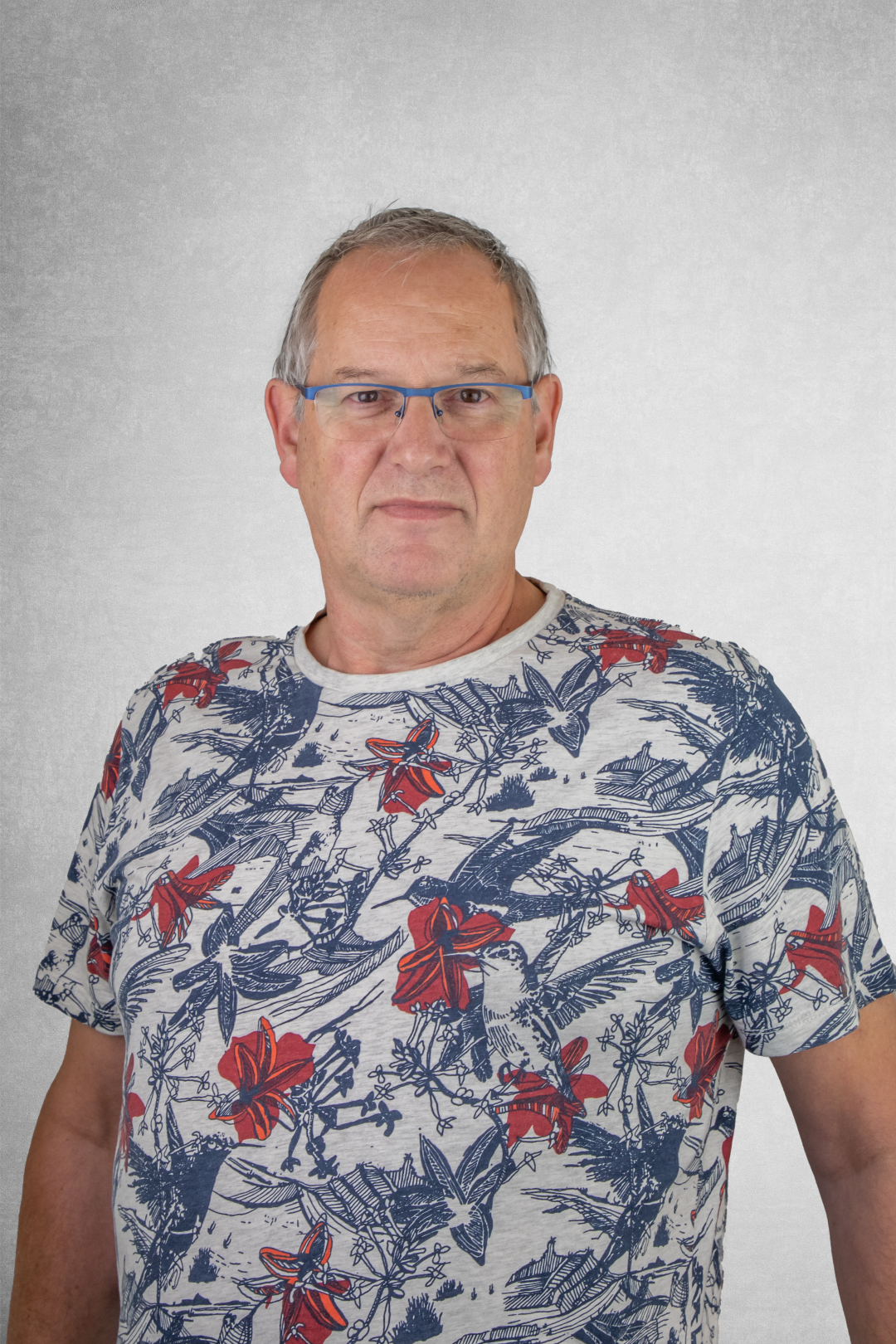
Safety first
Henk den Hartigh
Henk den Hartigh started his career at Schothorst Feed Research in 1983 as a lab analyst, working just twenty hours a week. "I wasn’t only in the lab, I also helped with poultry research. For example, I 'milked' roosters for hen insemination," he says with a laugh. By the late ‘80s, veterinary tasks were added to his role, such as drawing blood and histology.
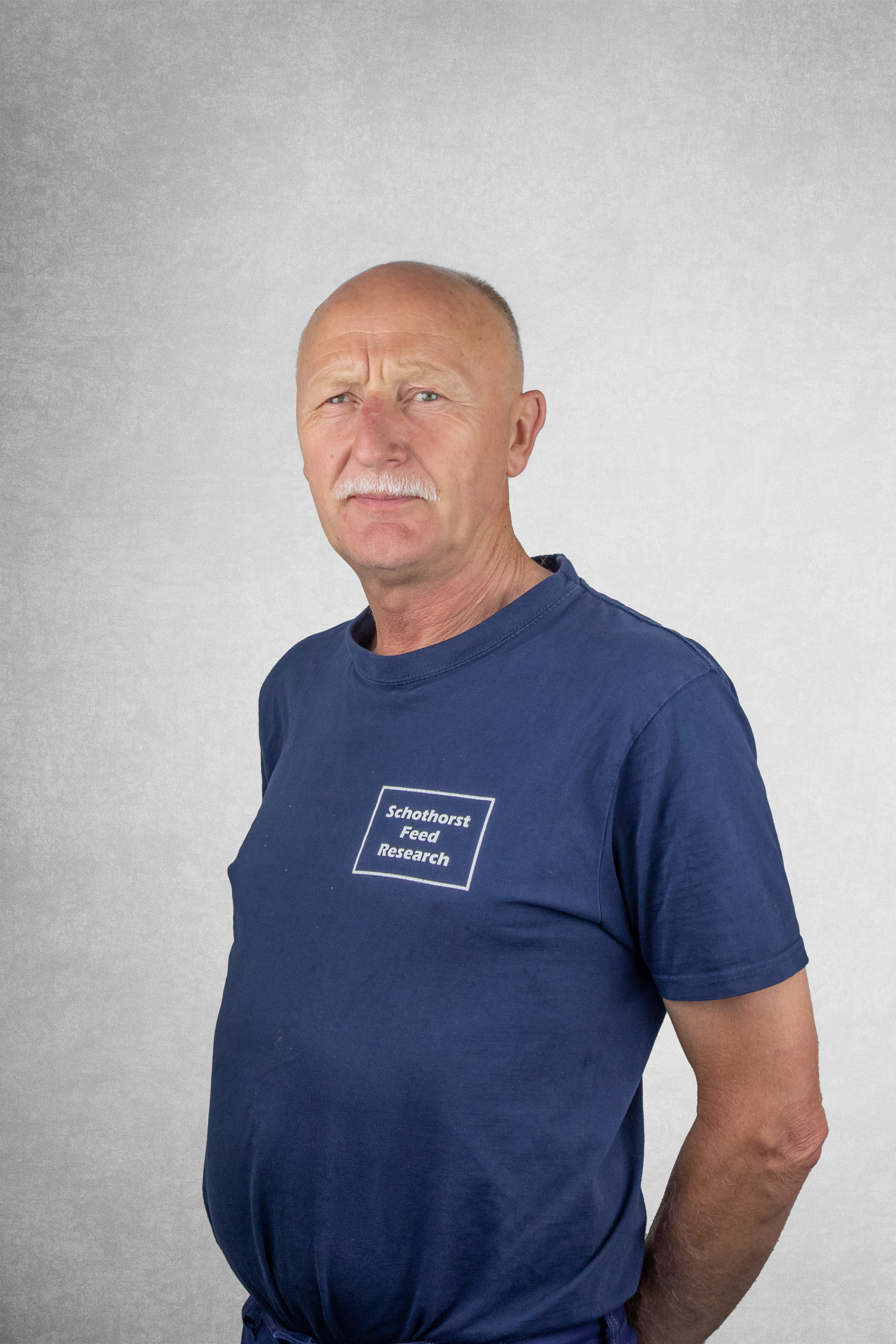
Farms
Jaap Rozendaal
Jaap started at Schothorst Feed Research in August 1982 as a pig caretaker, right after attending agricultural school. "In my first year, I also had the opportunity to explore other animal species, which gave me a good understanding of the entire operation," he says. Schothorst is a research company, which makes the work slightly different compared to a regular livestock farm. Jaap still regularly helps with research involving cattle and poultry. “It’s great how well everyone works together here, and how we support each other during busy research periods. It also adds variety to the work,” he says with satisfaction.

Poultry
Jack Morren
Jack attended agricultural school in Zwolle, specializing in pig and poultry farming. In August 1996, he joined Schothorst Feed Research as a poultry caretaker. "At that time, we had three barns: for laying hens, broilers, and parent stock, and there were only three of us working. Over the years, we’ve added more barns, animals, and staff," he explains. In addition to regular duties, Schothorst also conducts nutritional research with ducks and turkeys, which Jack finds an interesting expansion, as these sectors also require nutritional expertise.
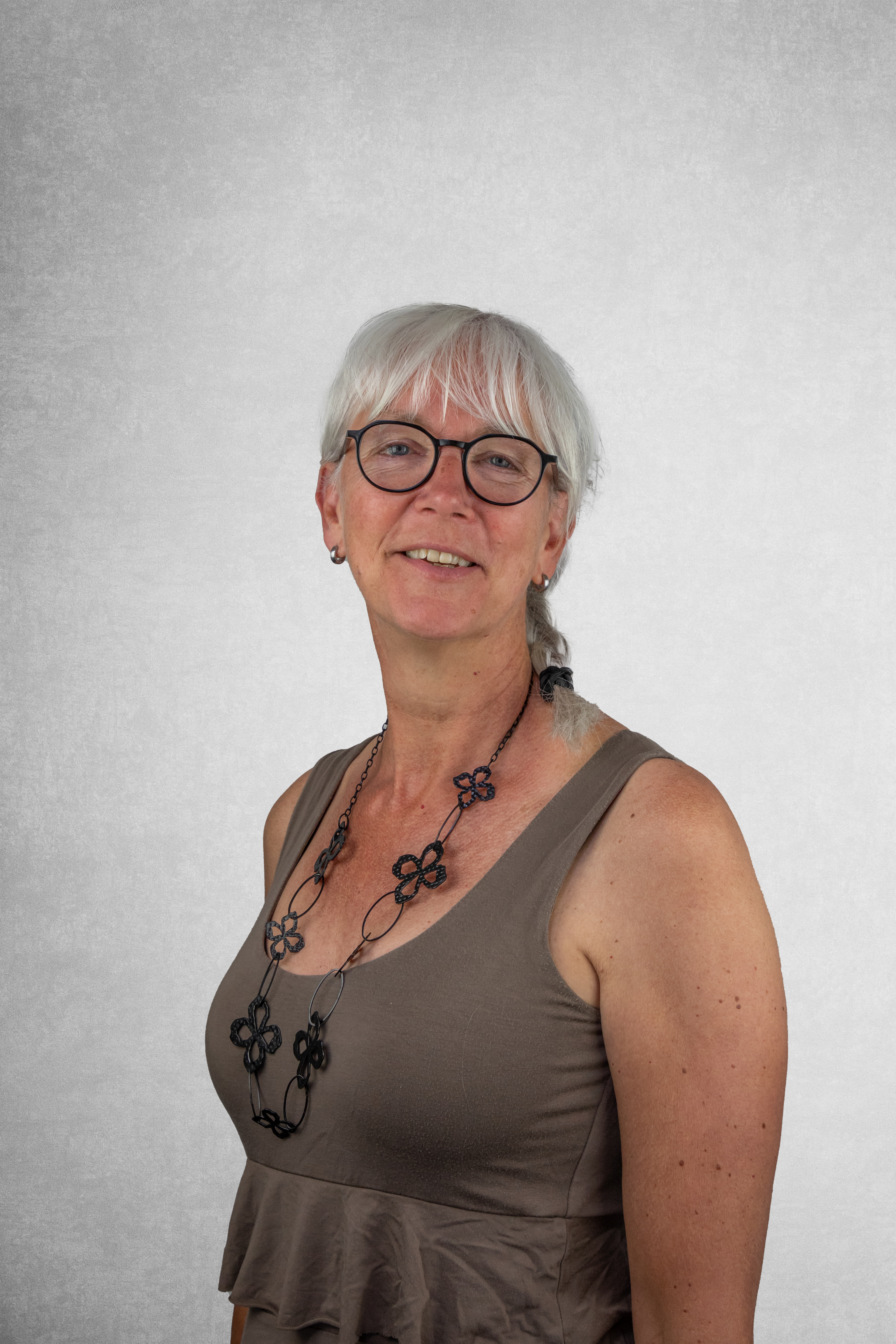
Laboratory
Mirjam Scholten
Mirjam Scholten completed her vocational training in laboratory technology, but in the 1980s, there were limited job opportunities in the field. As a result, she initially worked as an administrative assistant at a post office. However, her passion for lab work remained, and on September 5, 1989, she started at Schothorst, initially through a temp agency, working two days a week.
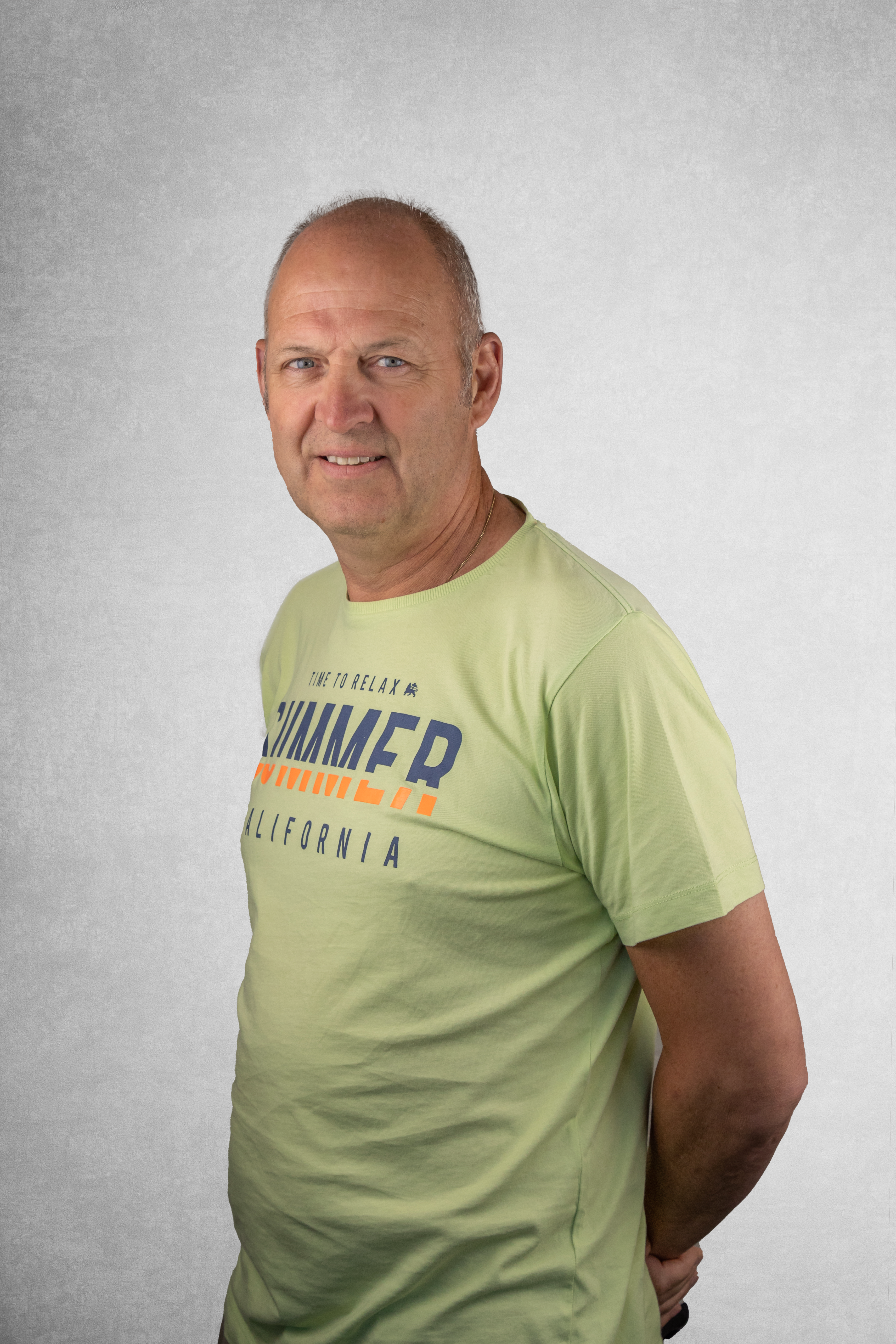
Data and more
Rienk van der Scheer
Next year, Rienk van der Scheer will celebrate his 35th anniversary at Schothorst Feed Research. “In the late '80s, after studying Animal Husbandry in Groningen, it was difficult to find work,” he shares. As a result, Rienk pursued further education in Agricultural Informatics. He started on May 1, 1990, as an assistant in feed automation at Schothorst.

Sharing knowledge
Wilfried van Straalen
Wilfried van Straalen has been a cattle researcher at Schothorst Feed Research for over thirty years. “I was still working on my PhD in Wageningen when Piet van der Aar invited me to join Schothorst,” he recalls. “The position immediately appealed to me, so I started in Lelystad. As a result, the completion of my dissertation took a bit longer than I had planned.”
Anniversary Giveaway
A more subdued subheading
SFR proudly celebrates its 90th anniversary, and we want to share this special milestone with our valued clients and the broader community. In honor of our 90 years of dedication, innovation, and service, we are offering everyone the chance to access our extensive knowledge.
For a limited time, you can download one of our exclusive webinars for free. We have curated a selection of 9 engaging webinars, covering various topics, that showcase our expertise and commitment to excellence.
We encourage you to invite colleagues, friends, and acquaintances to take advantage of this unique opportunity as well. "By viewing a video from us, you agree to be contacted for marketing purposes."
Understanding Carbohydrates: Digestion and Metabolism
Carbohydrates, composed of one or more monosaccharides (such as glucose, fructose, galactose, xylose, and ribose), are a vital energy source for animals. The breakdown of complex carbohydrates depends on the type of glycosidic bond and the species' digestive system (foregut vs. hindgut fermenters).This video explores the essential role of carbohydrates in animal nutrition, focusing on the structure, digestion, and metabolic pathways.
Oxidative Stress and Nutritional Strategies for Animal Health
Oxidative stress occurs when there is an imbalance between oxidants and antioxidants, leading to cellular damage and the activation of harmful biological pathways. Elevated oxidative stress can cause protein and lipid damage, negatively impacting animal health and performance.In this webinar, we will explore effective nutritional strategies to manage oxidative stress and promote animal well-being.
Updates on mycotoxins risks and actions in monogastric feed
This webinar provides an up-to-date analysis of the global distribution and prevalence of mycotoxins, based on current observations and predictive models. With mycotoxins posing a persistent threat to animal health, particularly in monogastric species, staying informed on regulatory changes is crucial.
Colostrum for a good start
Colostrum is critical for providing passive immunity to newborn calves, and ensuring both the quality and quantity of colostrum is essential. This presentation discusses key factors that influence colostrum production and highlights the importance of effective colostrum management practices.Additionally, the webinar addresses common questions about the impact of dry period nutrition on colostrum quality. Based on current research, we will explore cow-related, management, and environmental factors that affect colostrum quality and its role in calf health.
Effects of rumen protected amino acids on immunity and fertility
Amino acids play a crucial role in various physiological functions, with certain amino acids being more important at specific stages of a cow’s productive life, such as during milk production, fertility, or immune response. In recent years, research has expanded on the functional role of amino acids, particularly in enhancing nitrogen utilization on dairy farms.This webinar will focus on the benefits of using rumen-protected amino acids during the transition period and their impact on cow fertility, immune response, and the development and immunity of future progeny.
Promoting intestinal health in piglets
Recent increases in litter size have led to lower average piglet birth weights and reduced uniformity within litters. This has negatively impacted piglet viability, resulting in slower growth and higher mortality rates, particularly in the first days after farrowing.This webinar will explore nutritional strategies to support sows in improving litter uniformity and boosting piglet birth weights, ultimately enhancing overall piglet health and survival.
Understanding the Poultry Intestinal Tract: A Refresher
This quick refresher provides essential insights into the poultry intestinal tract, offering a foundation for better understanding poultry nutrition. Strengthen your knowledge to support further learning and optimize nutritional strategies for improved bird health and performance.
Sustainable Feed: Impacts on Formulation and Costs
As governments push for more sustainable farming practices, the feed industry faces important questions regarding how to define and achieve sustainable feed production. This webinar explores the implications of sustainability targets on feed ingredients, formulations, and costs, with a focus on practical strategies for the industry.
Exploring Alternative Feedstuffs: Hemp, Camelina, Groundnut, Cotton, and Egg Products
As an independent knowledge institute, SFR frequently addresses inquiries about the use of less common or new feedstuffs that are temporarily available in different regions of the world. This webinar offers an overview of these alternative ingredients and their potential in animal nutrition, focusing on feedstuffs such as hemp, camelina, groundnut/peanut, cotton, and egg products.
Our Timeline:
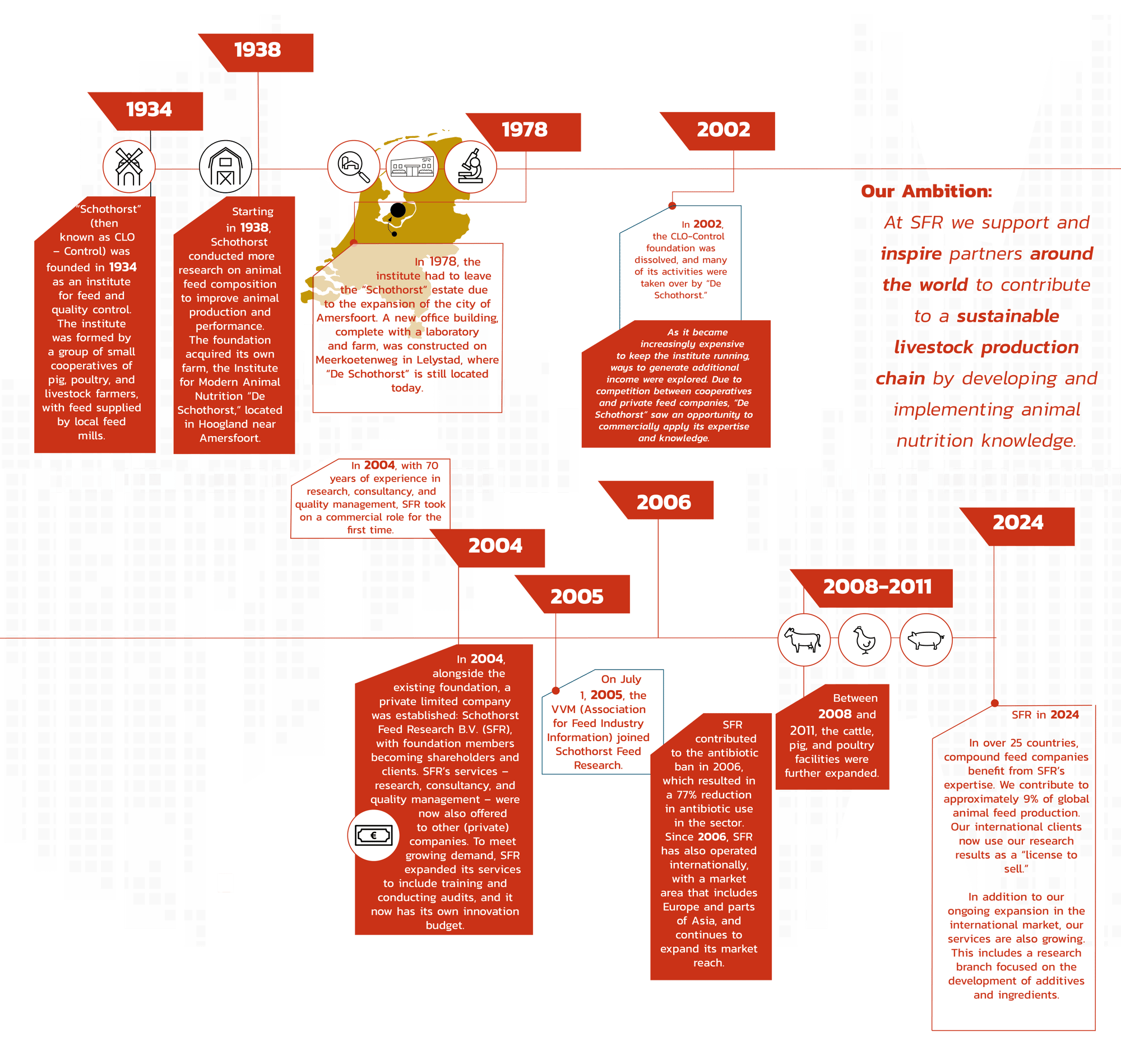




.jpg?width=2535&height=468&name=FDL%20Logo%20(hogere%20resolutie).jpg)


.png?width=300&height=120&name=download%20(2).png)
.png?width=478&height=105&name=download%20(3).png)
.png?width=300&height=168&name=download%20(4).png)
.png?width=295&height=171&name=download%20(5).png)
.png?width=195&height=195&name=download%20(6).png)
.jpeg?width=301&height=168&name=download%20(1).jpeg)
.jpeg?width=225&height=225&name=download%20(2).jpeg)
.jpeg?width=302&height=167&name=download%20(3).jpeg)
.png?width=284&height=177&name=download%20(7).png)
.png?width=415&height=121&name=download%20(8).png)
.jpeg?width=215&height=171&name=download%20(4).jpeg)
.jpeg?width=200&height=123&name=download%20(5).jpeg)









.jpeg?width=6000&height=4000&name=AdobeStock_345107219%20(1).jpeg)